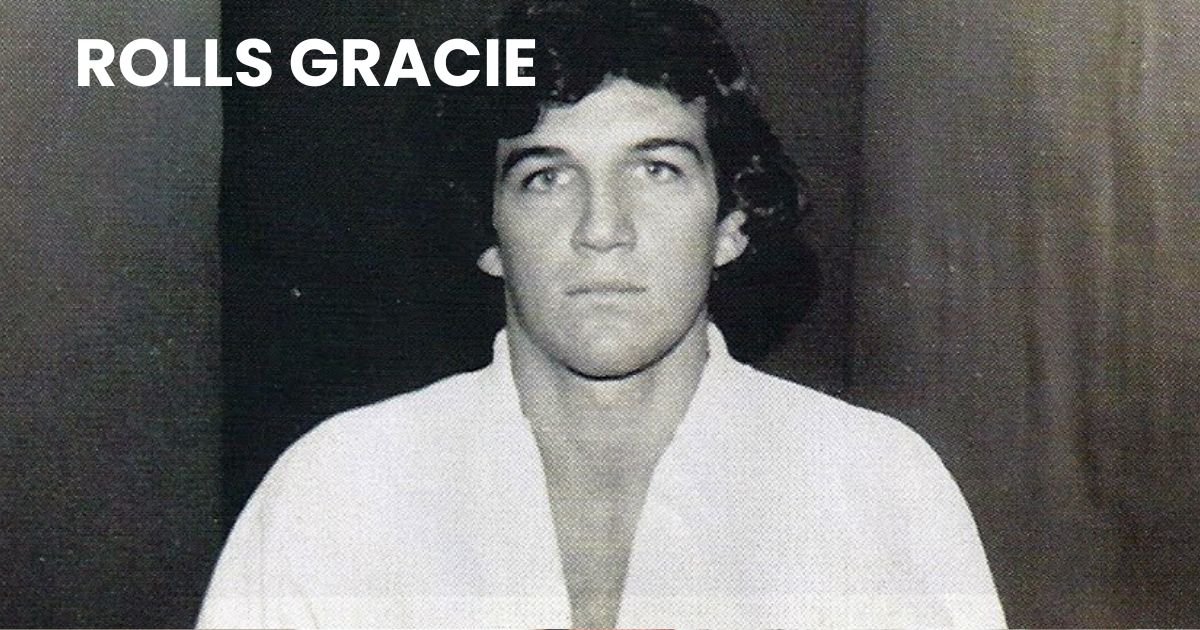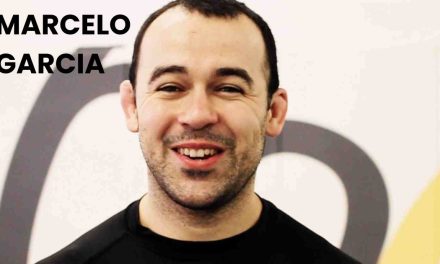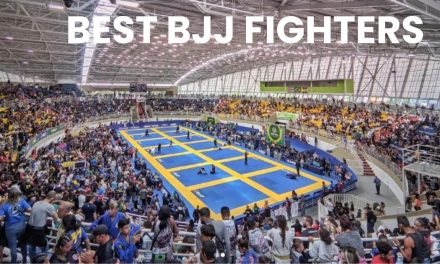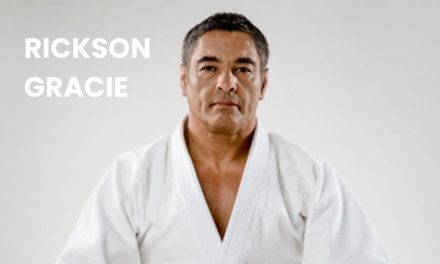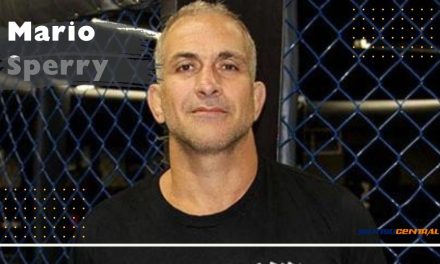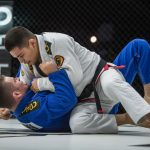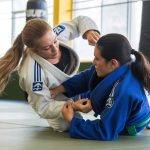Rolls Gracie, a name synonymous with the evolution of Brazilian Jiu-Jitsu (BJJ), is a seminal figure in the martial arts world. Born into the legendary Gracie family, Rolls was known for his innovative techniques and his role in bridging the gap between traditional Gracie Jiu-Jitsu and other fighting styles. As a member of the Gracie family, he was instrumental in the development of what is now regarded as a dynamic and influential martial art.
Gracie’s impact on martial arts stretches beyond the boundaries of BJJ; he was a pioneer who infused elements from other disciplines such as wrestling, judo, and sambo into his repertoire. His competitive achievements underscore his prowess, and his training methods have been adopted by generations of fighters. Rolls’s sudden and premature passing left the martial arts community in mourning, but his influential techniques and training philosophies have perpetuated his legacy within the sport.
Key Takeaways
- Rolls Gracie was a key figure in the advancement of Brazilian Jiu-Jitsu.
- His innovative approach incorporated diverse techniques from various martial arts.
- Despite his early death, Gracie’s legacy endures through his significant contributions to martial arts.
Early Life and Gracie Family
Rolls Gracie, a pivotal figure in Brazilian Jiu-Jitsu, was born into the renowned Gracie family, shaping this martial art form. Your understanding of Gracie Jiu-Jitsu will deepen as you learn about his upbringing and the Gracie family lineage.
Childhood of Rolls Gracie
Rolls Gracie was born on March 28, 1951, in Rio de Janeiro, Brazil. As the son of Carlos Gracie, the co-founder of Gracie Jiu-Jitsu, and Claudia, Rolls was immersed in martial arts from an early age. He was one of thirteen children, a fact that ensured a dynamic and competitive atmosphere which honed his skills. Rolls followed a strict training routine and was influenced by his uncle Hélio Gracie, who alongside Carlos, developed the Gracie Jiu-Jitsu method.
The Gracie Family Tree
The Gracie family is a prominent martial arts family known to many as the forebears of Brazilian Jiu-Jitsu (BJJ). Observing the chart of the Gracie family tree, one can identify direct lineage starting from Carlos and Hélio Gracie, who were central to the evolution of BJJ. While the family includes numerous members, the most influential include:
| Generation | Figure |
|---|---|
| First | Carlos Gracie, “The Founder” |
| First | Hélio Gracie, “The Innovator” |
| Second | Rolls Gracie, “The Modernizer” |
Each of these individuals played a critical role in BJJ. Carlos began teaching the art and established the first Gracie Academy in 1925, while Hélio refined the technique emphasizing leverage and technique over size and strength. Rolls, representing the second generation, is often credited with incorporating new elements into Gracie Jiu-Jitsu, such as wrestling and judo, which were instrumental in the evolution of the art as you know it today.
Martial Arts Prowess
Rolls Gracie’s martial arts prowess significantly influenced modern Brazilian Jiu-Jitsu through his innovative integration of various grappling arts.
Judo Influence
Rolls Gracie, a name synonymous with martial arts, began his grappling journey with judo, a discipline that became the bedrock of his diverse skill set. Judo’s emphasis on throws and groundwork laid the foundation for his later developments in grappling. As a black belt in judo, his proficiency greatly enhanced his Brazilian Jiu-Jitsu (BJJ) training, which already favored submission and ground-fighting techniques. This blend of judo and BJJ allowed him to create a unique and formidable style that was both traditional and innovative.
Wrestling and Sambo Skills
In addition to judo, Rolls was influenced by wrestling and sambo, two martial arts known for their effective takedowns and control techniques. He incorporated wrestling’s dynamic take-downs and top-game strategies, along with sambo’s leg locks and unorthodox submissions, into his repertoire. This cross-training made him a versatile fighter, capable of engaging opponents from various martial arts backgrounds. By integrating techniques from these grappling arts, Rolls became a pioneering force in the evolution of Brazilian Jiu-Jitsu, showcasing the effectiveness of a more complete grappling-oriented approach.
Transformation of Brazilian Jiu-Jitsu
The transformation of Brazilian Jiu-Jitsu (BJJ) by Rolls Gracie cannot be understated. He pioneered the inclusion of open guard techniques, which revolutionized BJJ strategy and competition. His training philosophy emphasized a comprehensive grappling system that was adaptable, creative, and constantly evolving. Rolls’s approach to BJJ was characterized by smooth transitions, a focus on functional fitness, and a relentless pursuit of practical, high-percentage submissions. His legacy within Brazilian Jiu-Jitsu is seen in the fluidity and complexity of modern BJJ games, making him a key figure in the martial art’s ongoing development.
Competitive Achievements
Rolls Gracie, a name etched in martial arts history, has left an indelible mark on the world of Brazilian Jiu-Jitsu through his competitive successes. You’ll explore his championship titles, notable matches, and the legacy he built by mentoring black belts who continued to propagate his teachings in the realm of competition.
Championship Titles
Rolls Gracie’s tenure in competition saw him secure numerous championship titles, making him one of the best BJJ Fighters. Known for his innovative style and combat prowess, he became a beacon in the Brazilian Jiu-Jitsu community. Among his many accolades:
- Rio de Janeiro State Champion: Multiple years
- National Champion: Several instances across different weight divisions
These titles cemented Rolls as a dominant competitor and a true champion of the sport.
Notable Matches and Rivalries
Throughout his competitive career, Rolls engaged in notable matches that showcased his skill and indomitable spirit. One such riveting match was against the formidable Rickson Gracie, his own brother, that churned the waters of familial rivalry yet displayed the mutual respect they held. Similarly, his encounters with Royler Gracie told tales of technical mastery and familial prowess on the mats.
Each match added to the storied legacy of Rolls Gracie, demonstrating his relentless dedication to the art of Brazilian Jiu-Jitsu and his unwavering competitive spirit.
Black Belts Tutelage
The impact of Rolls Gracie transcends his own achievements; through his black belts tutelage, a new generation of champions was forged. Notable black belts under his guidance include:
- Romero Cavalcanti: A legendary figure in the sport
- Mauricio Motta Gomes: Who has contributed greatly to the spread of Brazilian Jiu-Jitsu
- Carlos Gracie Jr.: A key figure in the founding of the International Brazilian Jiu-Jitsu Federation (IBJJF)
Under his tutelage, these individuals not only excelled in competition but also embodied Rolls’s profound understanding and philosophy of the sport, thus continuing his legacy.
Your journey through Rolls Gracie’s competitive accomplishments highlights both his personal triumphs and his enduring influence on the Brazilian Jiu-Jitsu landscape. Through his titles, matches, and the black belts he mentored, the essence of his contribution to the sport remains unparalleled.
Contribution to Martial Arts
Rolls Gracie revolutionized Gracie Jiu-Jitsu and greatly influenced the techniques and training regimens within the Gracie family and worldwide, leaving an indelible mark on Brazilian Jiu-Jitsu.
Advancements in Gracie Jiu-Jitsu
Rolls Gracie is often credited with infusing traditional Gracie Jiu-Jitsu with innovative techniques that contributed to its evolution into a more complete martial art form. His dedication to enhancing Gracie Jiu-Jitsu led to the incorporation of wrestling and judo maneuvers, which complemented the existing groundwork focus. He emphasized the importance of being well-rounded in both standing and ground techniques, laying the groundwork for the modern synthesis of Brazilian Jiu-Jitsu.
Through rigorous and systematic training, Rolls not only refined techniques but also introduced a higher level of athleticism into the practice. His approach signaled a shift towards a more holistic view of fighter development, where physical conditioning, strategy, and technique became the pillars of the Gracie Jiu-Jitsu methodology.
Influence on Gracie Family Fighters
Rolls Gracie’s role within the Gracie family as a mentor and coach was substantial. His influence spread across a range of fighters and martial artists including Carlson Gracie, Rigan Machado, and Romero “Jacare” Cavalcanti, among others. Under his guidance, they and many others in the family sharpened their skills and expanded their martial arts repertoire.
Moreover, his teaching style fostered an environment where competitive sparring and exposure to varied martial arts forms were encouraged. This not only accelerated the skill development of the Gracie family fighters but also instilled in them a mindset that sought continuous improvement. Rolls’s legacy in this regard is significant in shaping the training philosophies and success of generations of Gracie fighters.
Tragic and Untimely Death
Rolls Gracie, a legend in Brazilian Jiu-Jitsu, met an untimely death due to a hang-gliding accident. This tragic event shocked the martial arts community and made headlines around the world.
Hang-Gliding Accident Details
On the fateful day, Rolls Gracie decided to pursue his passion for hang-gliding, which unfortunately led to a disaster. The accident occurred under circumstances that remain a poignant reminder of the inherent risks associated with aerial sports. Your understanding of the tragedy will be framed by the information that has been gathered about the incident.
- Date of Accident: The event took place on June 6, 1982.
- Location: The accident occurred in the picturesque Tijuca Forest near Rio de Janeiro.
- Weather Conditions: That day, weather was reportedly clear, a detail which adds to the unexpected nature of the incident.
- Immediate Response: Emergency services were called to the scene, but despite their prompt arrival and efforts, they could not save the BJJ icon.
This incident serves as a stark marker in the life and legacy of Rolls Gracie, whose innovations in Brazilian Jiu-Jitsu deeply influenced the martial art form. His loss continues to resonate with practitioners and enthusiasts who hold his memory in high regard.
Legacy and Influence
Rolls Gracie left an indelible mark on Brazilian Jiu-Jitsu, reshaping the discipline and influencing a generation of practitioners through his approach and the students he mentored.
Rolls Gracie’s Impact on BJJ
Rolls Gracie, a member of the renowned Gracie family, is often credited with the evolution of Brazilian Jiu-Jitsu (BJJ). You may acknowledge that Rolls was known for his open-mindedness, as he incorporated techniques from different martial arts into BJJ. He was crucial in developing the sport into a more comprehensive martial art that included not just ground fighting but also wrestling takedowns and judo.
- Technique Integration: Rolls was pivotal in integrating wrestling techniques into the BJJ curriculum.
- Holistic Approach: His emphasis on physical preparation and cross-training paved the way for modern BJJ practitioners.
Training Innovations:
| Aspect | Description |
|---|---|
| Live Drilling | Increased emphasis on sparring sessions. |
| Athleticism | Pioneered the integration of strength and conditioning exercises. |
Rolls’s progressive view on martial arts influenced not just his students and relatives but the entire BJJ community.
The Famous Five
The Famous Five were Rolls’s top students and later became influential instructors in their own right. They played a critical role in perpetuating his teachings and philosophy.
Key Figures:
- Mauricio Gomes
- Romero “Jacare” Cavalcanti
- Carlos Henrique Elias
- Mario Claudio Tallarico
- Rigan Machado
Each one carried forward Rolls Gracie’s legacy, spreading their knowledge worldwide and impacting the art of Jiu Jitsu on a global scale. Their collective influence helped shape the trajectory of BJJ, ensuring Rolls’s impact would be felt long after his untimely death. This group of remarkable individuals is a testament to Rolls’s teaching prowess, and they continue to inspire BJJ practitioners today.

